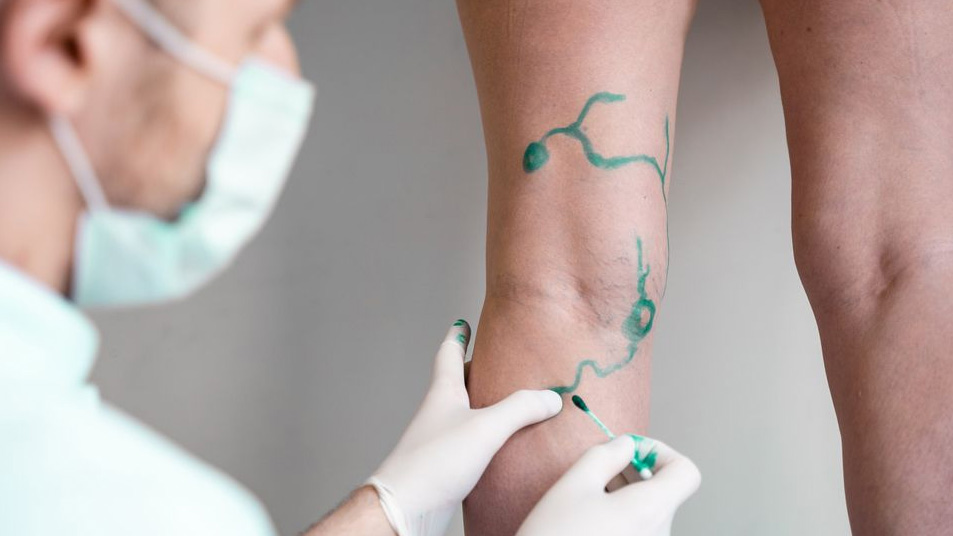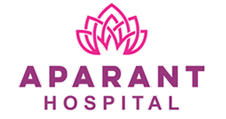
Vascular surgery is a medical specialty dedicated to diagnosing and
treating disorders of the vascular system, encompassing arteries, veins,
and lymphatic vessels. This type of surgery is essential for treating a
range of disorders such as peripheral artery disease, aneurysms, chronic
venous insufficiency and varicose veins. Vascular surgeons utilize
advanced techniques to restore proper blood flow and improve
circulation which is crucial for overall health. The process typically begins
with a comprehensive assessment of the vascular health of the patient,
often involving imaging studies such as ultrasounds, CT scans or MRIs to
visualize blood vessels and identify blockages.
Aparant Hospital in Chiplun is dedicated to providing vascular surgery
care, ensuring patients receive tailored treatment from diagnosis
through recovery. The hospital features advanced diagnostic tools such
as imaging studies and vascular assessments, allowing skilled vascular
surgeons to accurately evaluate and manage conditions such as
peripheral artery disease, aneurysms and varicose veins. Utilizing
innovative surgical techniques such as minimally invasive options like
angioplasty and endovenous laser therapy, Aparant Hospital prioritizes
patient safety and comfort while promoting faster recovery times. Post
operative care is a vital focus, with dedicated follow-up appointments to
monitor healing and manage any potential complications. Through a
multidisciplinary approach and a commitment to patient education,
Aparant Hospital ensures that individuals undergoing vascular surgery
receive the highest standard of care, enhancing their overall well-being
and quality of life.
Causes of Vascular Surgery :
1. Peripheral Artery Disease : A condition where narrowed arteries
reduce blood flow to the limbs, causing pain and mobility issues.
2. Aneurysms : Abnormal ballooning in blood vessels that can lead to life
threatening fractures, if not treated.
3. Chronic Venous Insufficiency : A condition characterized by the
veins' inability to efficiently return blood to the heart, leading to swelling
and discomfort.
4. Varicose Veins : Enlarged, twisted veins that can cause pain and are
often treated for cosmetic concerns as well.
5. Carotid Artery Disease : Narrowing of the carotid arteries, which can
increase the risk of stroke due to reduced blood flow to the brain.
6. Arteriovenous Malformations : Abnormal connections between arteries
and veins that can lead to serious complications if not corrected.
7. Raynaud's Disease : A condition affecting blood flow to certain parts of the body, usually fingers and toes, often triggered by cold or stress.
8. Ischemic Ulcers : Ulcers caused by insufficient blood flow, typically
occurring in the lower extremities and requiring surgical intervention.
Pre-Surgical Evaluation of Vascular Surgery :
1.Medical History Review : Assessing the patient's past health issues and surgeries to identify risk factors for vascular conditions.
2. Physical Examination : A thorough check-up to evaluate symptoms and
overall vascular health before proceeding with surgery.
3. Imaging Studies : Utilizing techniques like ultrasounds or CT scans to
visualize blood vessels and identify blockages or abnormalities.
4. Vascular Studies : Non-invasive tests to measure blood flow in the
arteries and veins, helping to diagnose vascular issues.
5. Assessment of Comorbid Conditions : Evaluating other existing health
conditions such as diabetes or hypertension, that could affect surgical
outcomes.
Various Treatment Options for Vascular Surgery :
1. Angioplasty and Stenting : A minimally invasive procedure to widen
narrowed blood vessels and place a stent to keep them open.
2. Endovenous Laser Therapy : A non-surgical intervention for varicose
veins using laser energy to close off affected veins.
3. Bypass Surgery : Creating a alternate route around blocked blood
vessels to restore proper blood flow.
4. Aneurysm Repair : Surgical techniques such as open surgery or
endovascular repair, to fix vascular swellings in blood vessels.
5. Thrombectomy : A procedure to remove blood clots from veins or
arteries to restore normal blood flow.
6. Vein Stripping : A surgical procedure to remove varicose veins from the
leg to alleviate symptoms and improve appearance.
7. Sclerotherapy : An injection treatment that causes varicose veins to
collapse and fade, often used for smaller veins.
8. Transcatheter Aortic Valve Replacement : A low impact procedure to
replace a narrowed aortic valve in patients with aortic stenosis.
Frequently Asked Questions: (FAQs)?
1) What are the symptoms of vascular problems?
Symptoms may include leg pain, swelling, numbness, varicose veins
and changes in skin color.
2) How is vascular problem diagnosed?
Diagnosis typically involves physical examinations, imaging tests like
ultrasounds and vascular studies.
3) What treatment options are available for vascular?
Treatment options include angioplasty, bypass surgery, endovenous
laser therapy and lifestyle management at Aparant Hospital.
4) How can I prevent or minimize the issue of vascular surgery?
Preventive measures include maintaining a healthy lifestyle, managing
risk factors and regular check-ups with a healthcare provider.
5) Why choose Aparant Hospital for vascular surgery?
Aparant Hospital offers advanced technology, experienced specialists
and a comprehensive approach to vascular care tailored to patient
needs.
